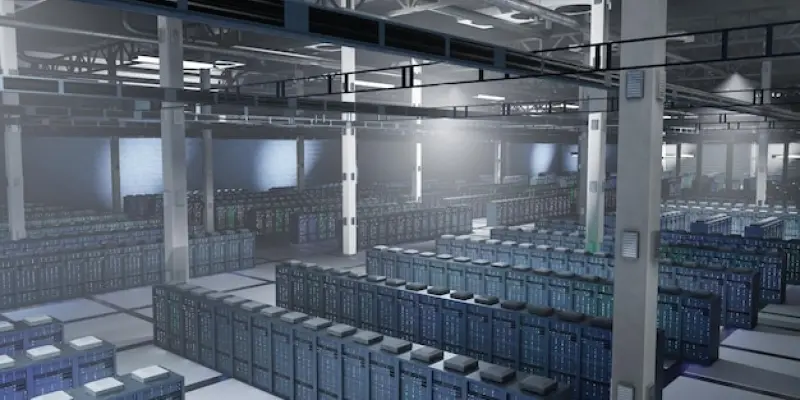As global demand for data-processing capacity continues to rise, the burden placed on data centers has never been greater. In an age where sustainability is gaining importance, one of the most pressing challenges faced by data center operators is minimizing the energy consumption dedicated to cooling operations. Accelsius, a leader in innovative cooling systems, has embarked on a significant project that holds potential for substantial advancements in this area. This initiative is part of the ARPA-E COOLERCHIPS program, spearheaded by the University of Texas at Arlington. With the involvement of several renowned industry players, the project appears set on transforming the landscape of data center efficiency. At the core of this initiative is the development of cutting-edge cooling technologies, incorporating both direct-to-chip evaporative cooling and conventional air-based methodologies.
Pioneering Cooling Technologies
One of the significant components in this project is Accelsius’s MR250 Coolant Distribution Unit, which plays a pivotal role in the test infrastructure. This technology aims to integrate seamlessly within data center operations, targeting an ambitious goal of reducing cooling energy consumption to below five percent of the IT load. The research, led by Professor Dereje Agonafer, aims to contribute to a broader strategy focusing on efficiency and scalability, essential for rapidly increasing rack densities. This effort represents not only a technical milestone but also a concerted move toward sustainable solutions for the infrastructure supporting modern digital life. Accelsius, which started to commercialize technology from Nokia’s Bell Labs, exemplifies the ongoing trend towards two-phase cooling systems. These systems are increasingly relevant in today’s scenario as industries strive to optimize energy use without compromising performance.
Collaborative Approach to Innovation
At the core of this initiative is the collaboration between industry giants like Intel, Nvidia, and HP. Together, they represent a formidable alliance aimed at keeping the United States at the forefront of energy-efficient data center system development. By uniting their efforts, they are committed to advancing both individual technologies and the industry’s collective capacity to transform cooling operations. This collaborative spirit is acknowledged by the program director, emphasizing its potential to significantly enhance carbon efficiency and sustainability. The synergy offers hope to reduce the substantial carbon footprints of current data storage infrastructures. The ARPA-E COOLERCHIPS project showcases the achievements possible when academia and industry leaders work towards a common goal. As this collaboration progresses, it highlights the commitment to pioneering sustainable innovation in data center operations. In essence, Accelsius and its partners make strides toward an eco-friendly digital ecosystem, paving the way for future efficiency designs and strategies.

